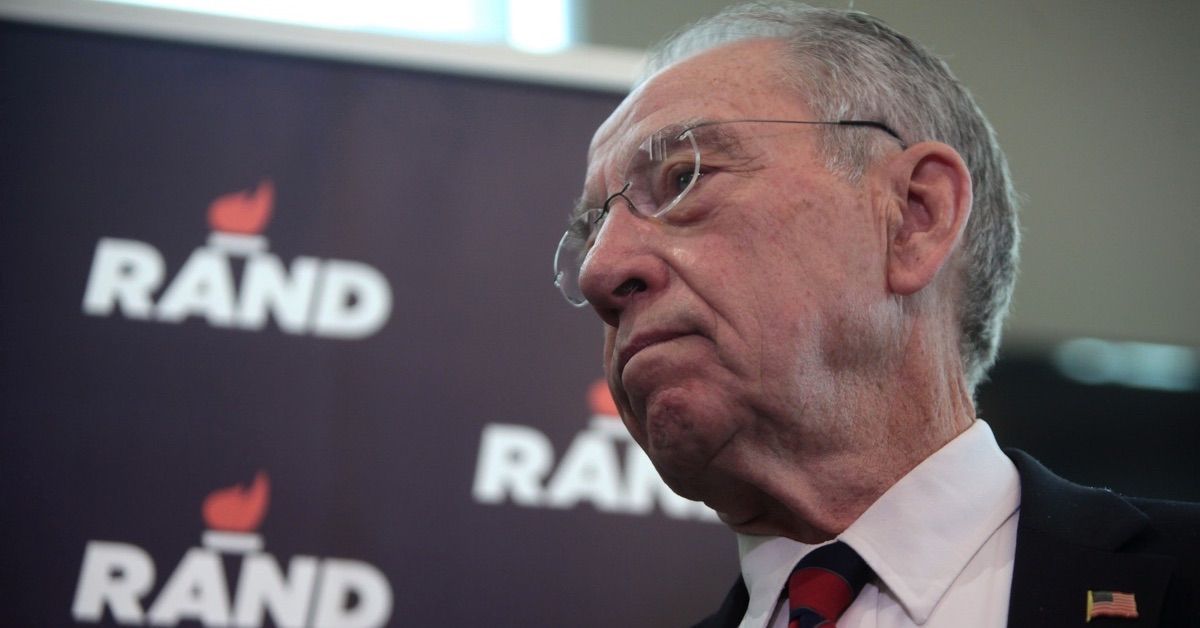On 3 December 2017, the day after the Senate approved a controversial tax bill, Sen. Chuck Grassley's (R-Iowa) comments suggesting that doing away with taxes on large inheritances would benefit those who invest rather than waste their money caused a stir. The Des Moines Register reported that Grassley made the comments during a 29 November interview:
...Grassley was adamant about the need for change, even if farmers and small business owners represent a tiny minority of estate tax payers. The reason, he said, is as much philosophical as practical.
An estate tax effectively and unfairly taxes a person’s earnings twice, he argued: first when they earn it and again when they die. And, he added, it penalizes savers without touching spenders.
“I think not having the estate tax recognizes the people that are investing,” Grassley said, “as opposed to those that are just spending every darn penny they have, whether it’s on booze or women or movies.”
The article went on to say that Grassley believed that the estate tax would also affect a large proportion of Iowa farmers, an idea that the paper disputed:
When asked for data supporting Grassley’s view, his Senate office offered a report from the American Farm Bureau Federation, which showed that rising land values in recent years have increased the number of farms potentially subject to the estate tax.
That report found Iowa farms with as few as 625 acres — encompassing as much as 30 percent of farms in the state — could be subject to the tax in 2016.
This analysis overlooks key factors, however. For one, it applies an exemption level of $5 million, which is roughly the exemption for an individual. For married couples, the first $11 million in assets are exempt from the tax. Using the Farm Bureau’s analysis but applying an $11 million exemption suggests only farms with more than about 1,400 acres might face the estate tax. Ten percent or less of Iowa farms are that size.
The Farm Bureau analysis also does not account for various deductions available that can drive an estate’s taxable value below the $5 million threshold. Of the 120 Iowa taxpayers who filed an estate tax return in 2016, 118 claimed deductions and 44 actually owed taxes.
However, much of the criticism of Grassley focused on his comments about "booze or women or movies," and what he seemed to imply, rather than his potentially inaccurate information about Iowa farmers. The Washington Post reported:
The suggestion — that anyone not socking away their savings in the bank or investments must be profligately throwing their money away — played directly into the critique that Republicans are disconnected from the majority of working Americans.
Left-leaning sites like Politicususa.com interpreted Grassley's comments to mean that "rich people deserve tax cuts more than working class people."
Grassley's purported comments were part of a larger debate surrounding contentious tax legislation passed in the Senate in the early hours of 2 December 2017.
